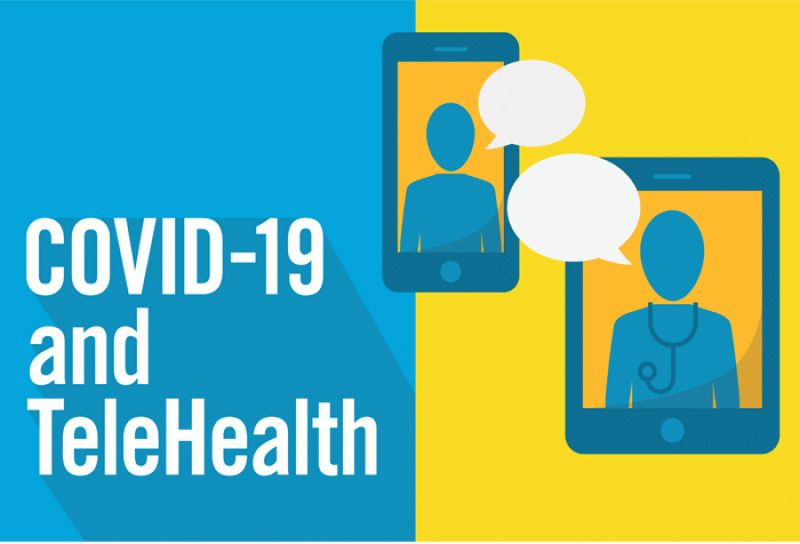
Pandemic showed importance of telehealth, telemedicine
Telehealth and telemedicine, two initiatives that became ubiquitous because of the COVID-19 pandemic that has ravaged the globe in 2020, are here to stay, according to two alums from the College of Applied Health Sciences’ Master of Public Health program.
Lauren Geary, who graduated from the MPH program in 2016 and is now Program Manager, Adolescent and Behavioral Telehealth Initiatives at the American Academy of Pediatrics, says the virtual health programs will stick around even after a COVID vaccine is widely distributed and people are inoculated.
“Yeah, I do think that it will stick around, and I think that it does improve access to care for several populations,” she said. “And I think that generally, it's more convenient for people sometimes. Obviously, it's not going to be a replacement for in-person care, but I think people are realizing how valuable it can be as a complement to in-person care.”
Alexis Katzenbach is another MPH alum who is the Program Manager of ECHO Initiatives at AAP. ECHO stands for Extension for Community Health Care Outcomes, a telementoring program that brings together subject matter experts and health care providers with those interested in learning about a variety of topics, one being COVID-19.
“I definitely don't think (telehealth is) going away,” she said. “A lot of the discussions we have around ECHO and a lot of other organizations that are running ECHOs are specifically talking about that right now. We're running a flu ECHO right now. And it's a lot of the same discussion. How are we doing this safely? What are innovative ways to get evidence-based guidance shared?"
As much as both support virtual health and wellness programs, virtual learning is not as clear-cut, Katzenbach said, stressing she was speaking for herself, and not AAP.
“I can speak to the fact that my husband is a high school science teacher. And it definitely affects (students’) social. There's a big social impact and emotional impact not being able to see their friends,” she said. “There's an impact on learning as well. Virtual learning is tough for a lot of people. So not being able to do it in person, not being able to receive the support that they otherwise would have in person is difficult. But I know that the social and emotional impact is huge."
Parents are also struggling with the full-day virtual learning format, Katzenbach said, adding that students are spending the same number of hours at their computers as they would spend in the classroom.
Both agreed, however, that they are applying what they learned in the MPH program to their current occupations.
“Some of the things that stick with me relate to, I think program evaluation was a really beneficial course that we took and also health behavior theory,” Geary said. “We learned about cultural competence and equity within our program. And those are things that we want to continue to ingrain in all of our work. So that was really helpful to have an intro to all of that through my graduate education.”
For her part, Katzenbach said, “I use logic models in every single position that I've been in. That definitely applied the information we learned in our grant writing. We did a lot of grant writing in one of our classes. And that is something that I've done in every role as well. I did learn a lot from our health behavior theory class. I was working at a local health department right after graduation for about four years in chronic disease and tobacco-related work. So the health behavior theory class was really, really helpful in implementing programs related to that.”
Katzenbach said she had a close friend in the Community Health program at Illinois.
“Community Health really jived with my interests and was still along the health field. And so it seemed like a really good next step for me. And it turned out to be the right one.”
